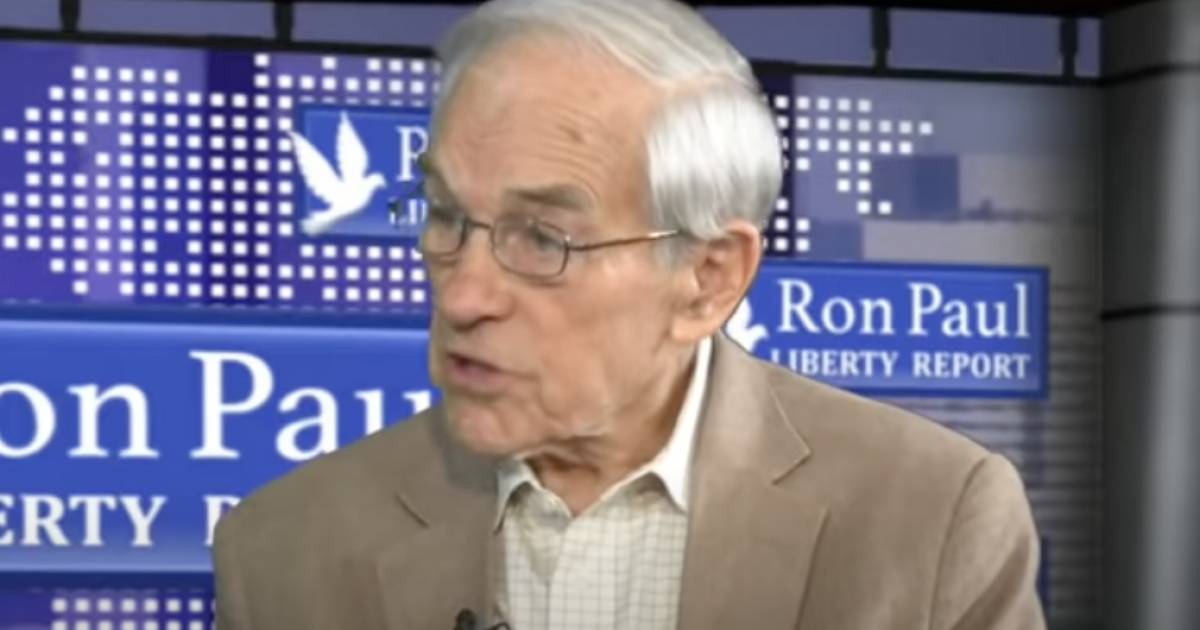
Many people believe that the world could be potentially entering world war as Russia is currently conducting a controversial military intervention in Ukraine.
While neocons and neoliberals are screaming for an escalation of tensions between Russia and Ukraine, former Congressman Ron Paul acted as a voice of reason in pointing out his consistent opposition towards America’s global consumer imperium.
He alluded to the North Atlantic Treaty Organization (NATO) and its expansion across the Former Soviet Union space which has inevitably led to an acceleration in tensions between Russia and Ukraine.
Paul alluded to Ukraine and Georgia potentially ascending to NATO in 2008 when George W. Bush floated the idea at the time.
In that instance, Paul called out this NATO enlargement scheme for the simple fact that it could lead to heightened tensions with Russia. For him, nearly two decades in the aftermath of the collapse of the Cold War and Warsaw Pact, expanding NATO was an irrational policy. Moreover, the very concept of NATO made scant sense.
Paul explained his “no” vote on a bill to support the expansion of NATO:
NATO is an organization whose purpose ended with the end of its Warsaw Pact adversary… This current round of NATO expansion is a political reward to governments in Georgia and Ukraine that came to power as a result of US-supported revolutions, the so-called Orange Revolution and Rose Revolution.
Providing US military guarantees to Ukraine and Georgia can only further strain our military. This NATO expansion may well involve the US military in conflicts unrelated to our national interest…
What Paul warned about in the past, has manifested itself in real time. Paul stresses that while people shouldn’t “approve of Russia’s military actions” it can still understand its geopolitical motivations: “NATO membership for Ukraine was a red line it [Russia] was not willing to see crossed.”
Paul is correct in noting that NATO expansion is bad but the military alliance itself “was a huge mistake.” He cited the late, great Senator Robert Taft, who was one of the fiercest opponents of NATO in the U.S. Senate. In 1949, when the Senate voted on the NATO treaty, Taft declared:
“… the treaty is a part of a much larger program by which we arm all these nations against Russia… A joint military program has already been made… It thus becomes an offensive and defensive military alliance against Russia. I believe our foreign policy should be aimed primarily at security and peace, and I believe such an alliance is more likely to produce war than peace.”
Taft added:
If we undertake to arm all the nations around Russia…and Russia sees itself ringed about gradually by so-called defensive arms from Norway and Denmark to Turkey and Greece, it may form a different opinion. It may decide that the arming of western Europe, regardless of its present purpose, looks to an attack upon Russia. Its view may be unreasonable, and I think it is. But from the Russian standpoint it may not seem unreasonable. They may well decide that if war is the certain result, that war might better occur now rather than after the arming of Europe is completed…
The funny part about all of this is that NATO has been off the mark from the jump. Paul is correct to mention that its initial treaty was signed off on April 4, 1949 but was later ensnared in a military conflict in Asia of all places — the Korean War. Despite being a European military alliance, it got immediately entangled in a conflict in Asia, showing that its mission is quite malleable, which opportunistic warmongers can always exploit.
Overall, NATO serves no pressing American interests.
When it comes to geopolitical theaters like Asia and Europe, there are tons of wealthy countries in those regions that are more than capable of defending themselves and not have the US holding their hand. The US should allow those countries to chart their own destiny and not have to be under the thumb of a decadent empire that spreads degenerate values abroad.
If the US is to have a foreign policy, it’s one that consists of securing its border and working in a benevolent manner to make the western hemisphere prosperous.



